Related Research Articles

Samuel Pepys was an English diarist and naval administrator. He served as administrator of the Royal Navy and Member of Parliament and is most famous for the diary he kept for a decade. Pepys had no maritime experience, but he rose to be the Chief Secretary to the Admiralty under both King Charles II and King James II through patronage, diligence, and his talent for administration. His influence and reforms at the Admiralty were important in the early professionalisation of the Royal Navy.

Edward Montagu, 1st Earl of Sandwich, KG PC FRS JP was an English military officer, politician and diplomat, who fought for the Parliamentarian army during the First English Civil War and was an MP at various times between 1645 and 1660. A loyal supporter of Oliver Cromwell, he was a member of the English Council of State from 1653 to 1659 and General at sea from 1656 to 1660. Following Cromwell's death in 1658, he switched allegiance and played an important role in the Restoration of Charles II in May 1660.
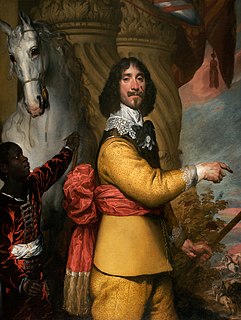
John Byron, 1st Baron Byron KB was an English nobleman, Royalist, politician, peer, knight, and supporter of Charles I during the English Civil War.
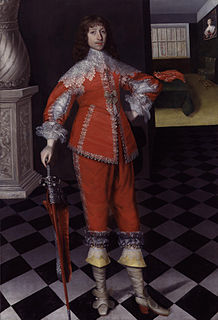
John Belasyse, 1st Baron Belasyse was an English nobleman, Royalist officer and Member of Parliament, notable for his role during and after the Civil War. He suffered a long spell of imprisonment during the Popish Plot, although he was never brought to trial. From 1671 until his death he lived in Whitton, near Twickenham in Middlesex. Samuel Pepys was impressed by his collection of paintings, which has long since disappeared.

Elisabeth Pepys was the wife of Samuel Pepys, whom she married in 1655, shortly before her fifteenth birthday.
Events from the year 1703 in England.
Sir Richard Pepys was an English lawyer and politician who sat in the House of Commons in 1640 and was Lord Chief Justice of Ireland. He was a great-uncle of Samuel Pepys, the diarist.

Sir Richard Levett, Sheriff, Alderman and Lord Mayor of London, was one of the first directors of the Bank of England, an adventurer with the London East India Company and the proprietor of the trading firm Sir Richard Levett & Company. He had homes at Kew and in London's Cripplegate, close by the Haberdashers Hall. A pioneering British merchant and politician, he counted among his friends and acquaintances Samuel Pepys, Robert Blackborne, John Houblon, physician to the Royal Family and son-in-law Sir Edward Hulse, Lord Mayor Sir William Gore, his brother-in-law Chief Justice Sir John Holt, Robert Hooke, Sir Owen Buckingham, Sir Charles Eyre and others.
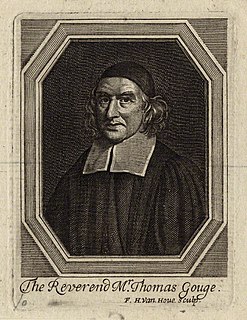
Thomas Gouge was an English Presbyterian clergyman, a contemporary of Samuel Pepys, associated with the Puritan movement.
AbramNewman (1736–1799) was one of the wealthiest men in 18th century London. He spent his life as a partner in one of the leading grocers, importing a wide range of produce including tea, coffee, sugar and spices.
Thomas Povey FRS, was a London merchant-politician. He was active in colonial affairs from the 1650s, but neutral enough in his politics to be named a member from 1660 of Charles II's Council for Foreign Plantations. A powerful figure in the not-yet professionalised First English Empire, he was both "England's first colonial civil servant" and at the same time "a typical office holder of the Restoration". Both Samuel Pepys and William Berkeley, Governor of Virginia, railed at times against Povey's incompetence and maladministration.
Sir Samuel Tuke, 1st Baronet was an English officer in the Royalist army during the English Civil War and a notable playwright. He is best known for his 1663 play The Adventures of Five Hours, possibly co-authored by George Digby – the play was produced by the Duke's Company and later proved an influence on Richard Brinsley Sheridan's opera The Duenna.
Monkhouse Davison (1713–1793) was the senior partner in one of the leading grocers in 18th century London, Davison Newman and Co., that imported a wide range of produce including tea, coffee, sugar and spices. The company is best known today for the disposal of chests of its tea in the Boston Tea Party at the start of the American Revolution. Products branded with the company name are still being sold, over 360 years after its foundation.
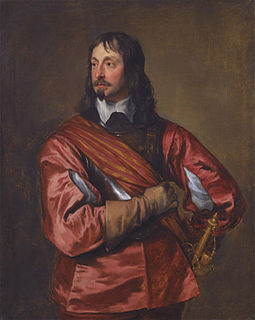
Vice Admiral Sir John Mennes was an English naval officer, who went on to be Comptroller of the Navy. He was also considered a wit. His comic and satirical verses, written in correspondence with James Smith, were published in 1656. He figures prominently in the Diary of Samuel Pepys, who reported directly to Mennes at the Navy Office and thought him an incompetent civil servant, but a delightful social companion.
William Brereton, 3rd Baron Brereton FRS was an English mathematician and politician who sat in the House of Commons in 1659 and became Baron Brereton in the Irish peerage in 1664. He was chairman of the Committee of Accounts, better known as the Brooke House Committee, in 1667–1670. In that capacity he clashed repeatedly with Samuel Pepys, whose description of Brereton in his Second Diary, or Brooke House Journal, although no doubt biased, is the best portrait we have of the man.
Roger Pepys was an English lawyer and politician who sat in the House of Commons from 1661 to 1678. He is chiefly remembered as Samuel Pepys's "Cousin Roger". He and his children appear regularly in Samuel's great Diary. Relations between the two men were always good.
Sir Robert Slingsby, 1st Baronet (1611–1661) was an English baronet, author and Naval commander, and in his last years a much-loved colleague of Samuel Pepys.
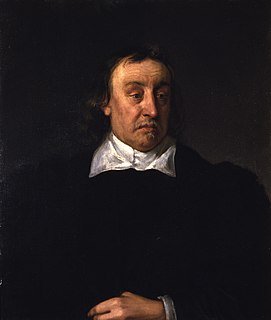
Sir Francis Prujean M.D. (1593–1666) was an English physician.
Carey or Cary Dillon, 5th Earl of Roscommon, PC (Ire) (1627–1689) was an Irish nobleman and professional soldier of the seventeenth century. He held several court offices under King Charles II and his successor King James II. After the Glorious Revolution he joined the Williamite opposition to James and was in consequence attainted as a traitor by James II's Irish Parliament in 1689. In that year he fought at the Siege of Carrickfergus shortly before his death in November of that year.

Sir Thomas Rawlinson (1647–1708) was a London winemaker who was Lord Mayor of London in 1705.
References
- 1 2 3 "Daniel Rawlinson (Biographical details)". British Museum.
- 1 2 3 4 5 Pepys, Samuel (1896). The Diary of Samuel Pepys ... G. Bell and sons. p. 174. Retrieved 24 February 2018.